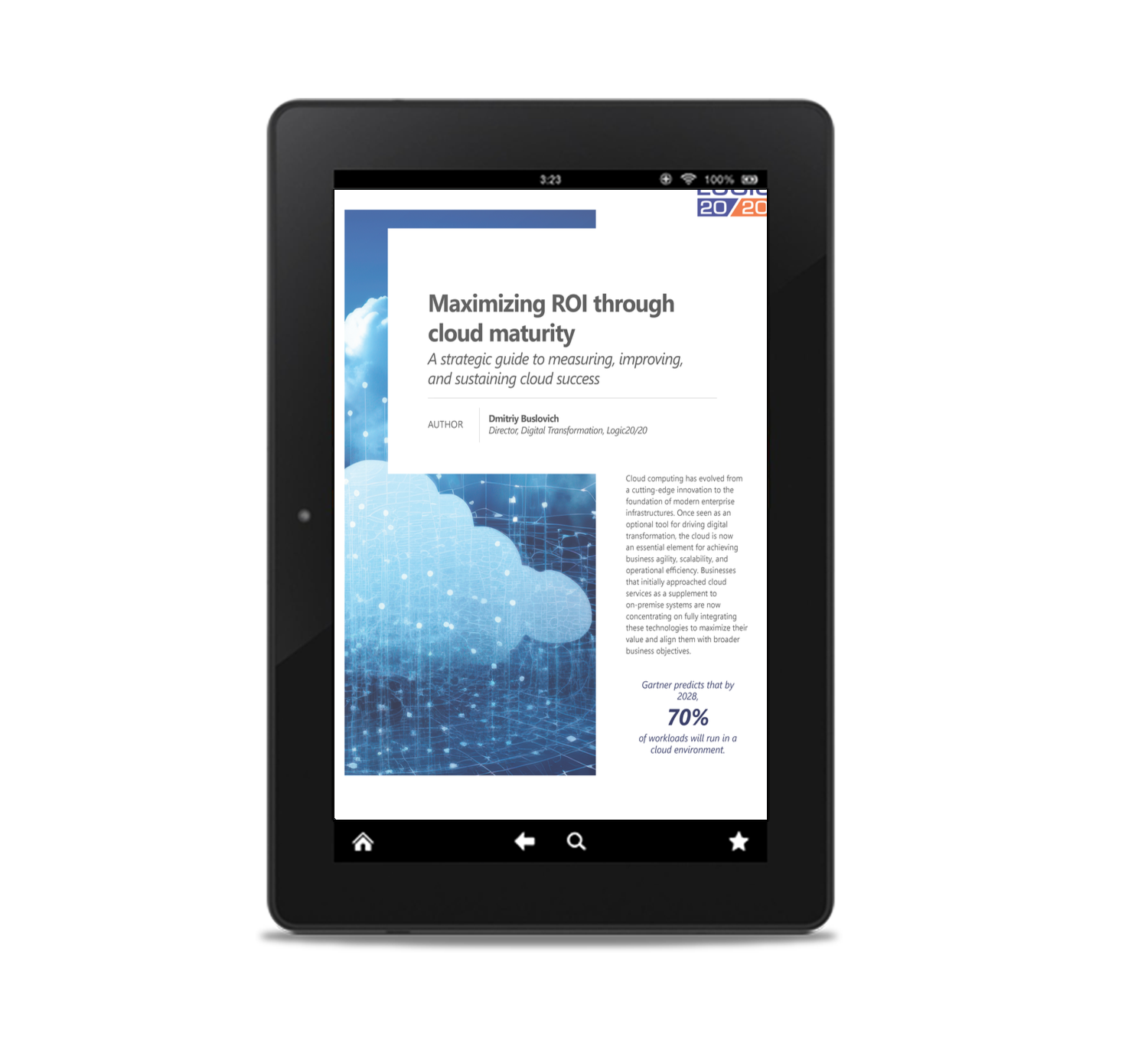Following is an excerpt from our white paper Maximizing ROI through cloud maturity: A strategic guide to measuring, improving, and sustaining cloud success. Click here to download the paper and learn more about overcoming obstacles to advancing your organization’s cloud maturity.
Skill gaps: Bridging the expertise divide
Many organizations struggle with a shortage of skilled professionals who are well-versed in cloud technologies, leading to inefficient use of cloud resources and potential mismanagement.
Challenge: Lack of internal expertise
Without a strong foundation of cloud knowledge, organizations may face difficulties in configuring, optimizing, and securing their cloud environments. This can lead to increased costs, security vulnerabilities, and operational inefficiencies.
Solution: Develop or acquire necessary skills
To overcome this hurdle, organizations need to focus on either developing cloud expertise in house or acquiring it through hiring or partnerships. By investing in training programs, certifications, and continuous learning initiatives, a business can build a team capable of managing and optimizing cloud infrastructure effectively. Partnering with technology consulting firms such as Logic20/20 can also provide the expertise needed to bridge the gap.
Article continues below.

Legacy system integration: Navigating the complexities
Legacy systems are often deeply embedded in business operations, making their transition to the cloud complex and risky.
Challenge: Integrating or migrating legacy systems
Many legacy systems were not designed with cloud compatibility in mind, leading to integration issues that can slow cloud adoption. These systems may require significant re-engineering or even replacement to function effectively in a cloud environment. If not managed properly, the integration or migration of legacy systems can delay cloud projects, increase costs, and reduce the overall effectiveness of cloud initiatives.
Solution: Develop a targeted integration plan
Organizations should conduct thorough assessments of their legacy systems, prioritize which systems to migrate, and develop a clear roadmap outlining the steps required to integrate these systems into the cloud. In some cases, a hybrid approach that combines cloud and on-premise solutions may be necessary to ensure business continuity during the transition.
Security and compliance concerns: Meeting industry standards
Ensuring that cloud environments meet industry-specific standards and protect sensitive data is essential for advancing cloud maturity, particularly in highly regulated industries such as finance, healthcare, and government.
Challenge: Aligning with compliance requirements and industry-specific regulations
In industries marked by strict compliance regulations, such as finance, organizations must
be especially vigilant about the security of their cloud environments and alignment with compliance requirements. The consequences of non-compliance can be severe, including legal penalties, financial losses, and reputational damage.
Solution: Build in compliance and security
Organizations must implement robust security measures, conduct regular audits, and ensure that their cloud environments are fully compliant with relevant regulations. Best practices for data encryption, access control, and incident response are essential, along with staying current on evolving regulatory requirements. Cloud providers that offer compliance support can help organizations navigate the complexities of maintaining compliance in a cloud environment.

